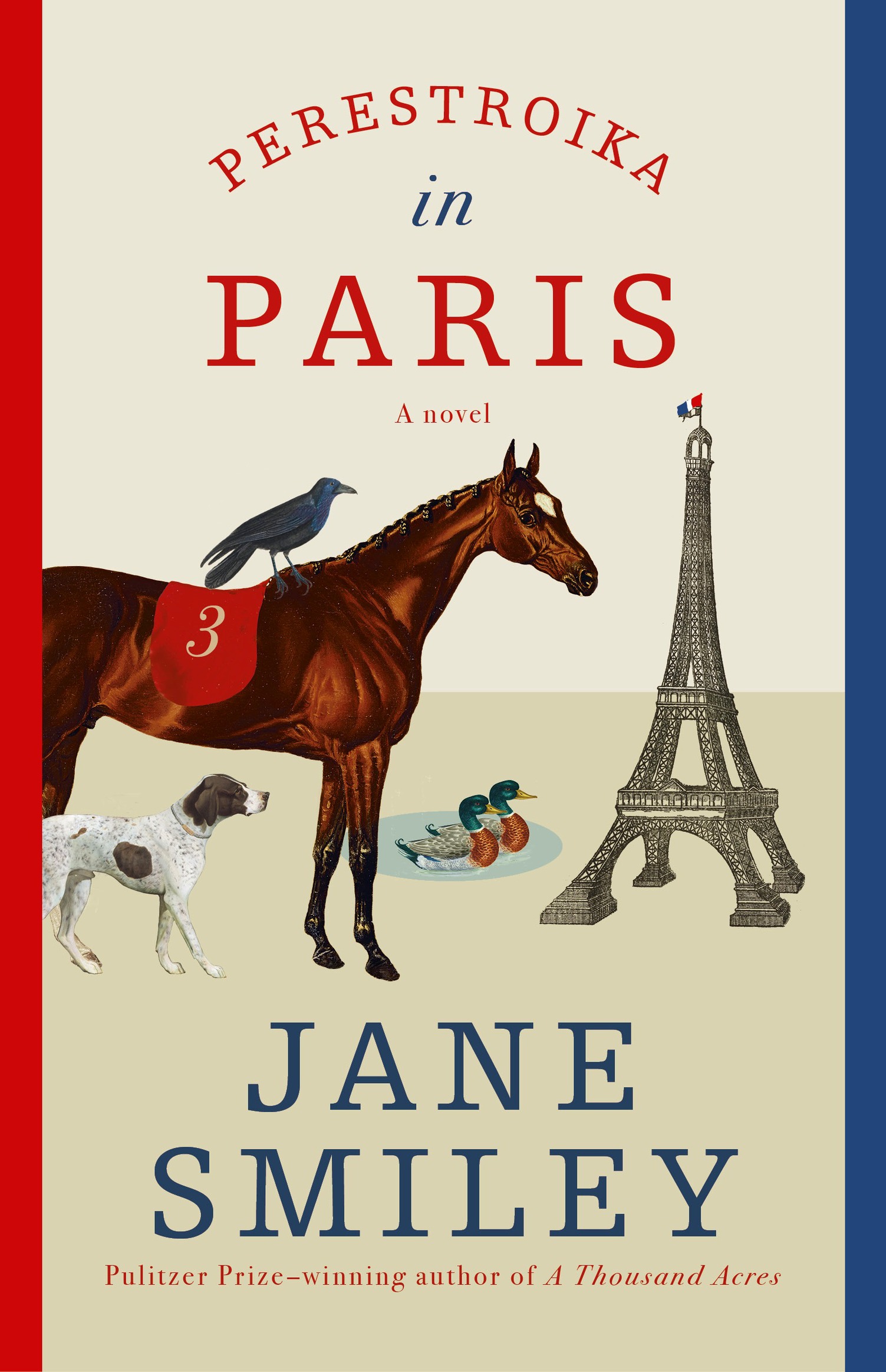
Perestroika in Paris
A novel
کتاب های مرتبط
- اطلاعات
- نقد و بررسی
- دیدگاه کاربران
نقد و بررسی

September 14, 2020
Fans of Pulitzer winner Smiley (A Thousand Acres) won’t be surprised to find a horse in her fanciful latest; this time out it’s a talking racehorse named Perestroika. Paras, as the horse is known, wanders out of her stable and finds herself in Paris’s Place du Trocadéro, where she meets Frida, a shorthaired German pointer who understands money and uses it to buy food for Paras and herself. There are no yellow vest protestors in Smiley’s idyllic Paris, where shopkeepers know all their customers and happily make change for well-behaved Frida. Paras was happy at the track, but she’s too curious to stay there (as Smiley indicates perhaps too often), and in her fable-like travels around Paris she encounters a wise raven who dispenses advice, an eight-year-old orphan who can hide a horse, and plenty of happy endings—not just for the animals, but for the people they encounter, especially if they, like Paras, are open to seeing the wonders of the world. As relationships deepen between animals and humans in their exploration of where to call home, Smiley steers them toward a satisfying feel-good ending. Relentlessly upbeat—there are no villains here, and even dogs and rats cooperate—this is the perfect book for those for whom the real world, wracked with pandemic and politics, has become something to avoid.

Starred review from October 15, 2020
Smiley, a longtime best-selling Pulitzer winner, follows a series of children's novels about kids and horses with this spellbinding, subtly shrewd fable. Perestroika is the name of a very curious, young French racehorse, called Paras for short, who one fine day pushes open the unlatched door of her stall, picks up her trainer's purse, and makes her way to Paris. She quickly attracts a guardian, Frida, a beautiful, streetwise hunting dog whose busker owner has died, and who has been fending for herself by taking full advantage of Parisians' adoration for well-mannered canines. Soon Paras and Frida befriend two mallards with the hilarious punk rock names of Sid and Nancy, and a haughty?or so he seems?raven, Sir Raoul Corvus Corax. They communicate easily, and each possesses a distinct and revealing perspective on the world and the art of survival. As careful as elegant Paras is, she can't help but be conspicuous, and soon attracts the awe of a very special little boy, �tienne, who lives with and takes care of his blind, hard of hearing, yet still quite keen great-grandmother in a deteriorating mansion, which is also home to a restless young black rat named Kurt. How boy, horse, dog, ducks, raven, and rat join forces and bring wonder and joy to lonely humans makes for a tenderly clever, charming, and spirit-nourishing tale of freedom and responsibility, acceptance and friendship, generosity and love.HIGH-DEMAND BACK STORY: Readers will flock to the first adult novel from Smiley in five years, especially since this smart and enchanting tale is a guaranteed antidote to stress.(Reprinted with permission of Booklist, copyright 2020, American Library Association.)

Starred review from December 1, 2020
As twilight descends on the Paris racetrack, a spirited filly named Perestroika (Paras for short) pushes against her unlatched stall door and walks into the City of Light. In her ambles, she befriends a dignified, beautiful dog named Frida, once companion to a street performer and now on her own. As they camp out on the Champs de Mars--a comfortably accommodating place, though thoroughly Thoroughbred Paras finds the carousel horses puzzlingly stolid--they meet querulous ducks Sid and Nancy and full-of-himself raven Raoul, even as Paras's owners desperately hunt for their beloved horse. Paras is fed oats and apples by a bakeshop assistant (Frida has her own singular way of getting and paying for food) and meets a lad named �tienne, who lives a solitary life with his great-grandmama in a decaying mansion. �tienne manages to lead Paras home, leaving the birds in a tizzy and Frida circling the city to figure out how to reclaim her friend. VERDICT All's well that ends well in this delightful yet never treacly celebration of interspecies cooperation from Pulitzer Prize winner Smiley. A bright and hopeful story that gently shares our need to belong.
Copyright 2020 Library Journal, LLC Used with permission.

























دیدگاه کاربران